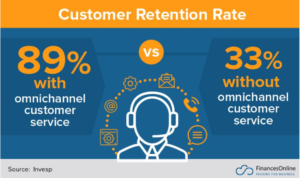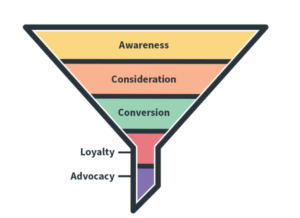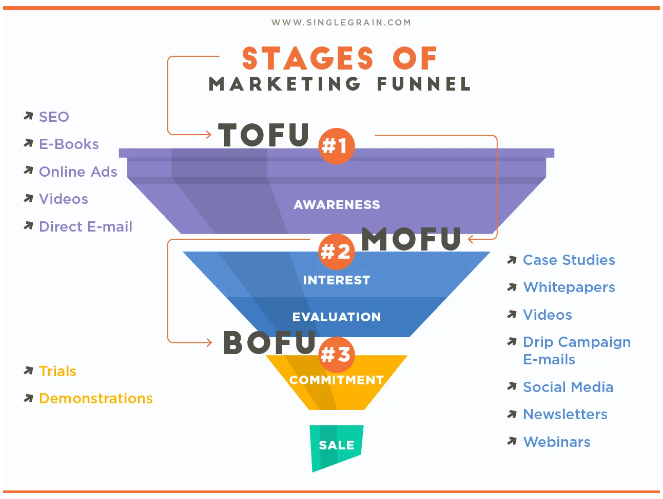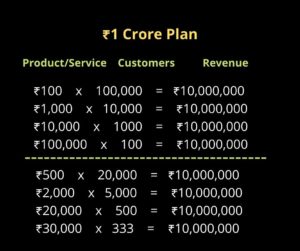“The aim of marketing is to get customers to know, like and trust you.”
– Unknown
The 9 marketing practices that I’ve shared here have helped me build my brand, build goodwill, get clients, get content writing assignments, build my personal brand, and more. This blog post will be specifically helpful to solopreneurs, coaches, consultants, micro and small business owners, and other experts, who are just starting out their business or are experienced and trying to build their brand in the online space. These age-old, proven lessons can be applied to any business at any stage. These are evergreen facts that have existed for centuries and probably might remain so for years to come.
The term “marketing” is so broad that new, as well as experienced marketers carry many misunderstandings of certain principles of marketing, and approach it wrongly. Maintaining such mindsets can be dangerous to your sales efforts and ultimately hurt your business in the long run. I’ve tried to present the best practices and the core principles that I’ve learned from my marketing coaching, digital marketing internship, and 20+ years of experience.
Even I had carried some myths of marketing as facts for a very long time, that were broken during my studies post-college. I had to unlearn something to learn these things that worked. Find out if you’ve been understanding marketing in the right sense, or are misled and had been holding your marketing efforts from being fruitful!
1. Understanding Marketing
I learned in college that marketing is the action or business of promoting and selling products or services, including market research and advertising.
Earlier in my first business, I thought if the product is good, it will market itself. But that’s not right.
However, in online coaching, I learned that marketing is a conversation. Marketing is the start of a conversation between two people who don’t know each other well. Great conversations result in a better understanding of needs. This type of insight leads to amazing products delivered through engaging customer experiences. This is how marketing works.
I ask questions when I meet someone I don’t know. I make an effort to get to know them. I try to understand their hopes, problems, and requirements. I don’t talk about myself unless the other person is genuinely interested in learning about me or what I do. But this can only come from genuine empathy. I need to genuinely care about this other person in order to gain their trust.
Marketing, at its most basic, is the process of understanding your customers and developing and maintaining relationships with them. Marketing is critical to the success of any business, regardless of size.
“Authentic marketing is not the art of selling what you make but knowing what to make.” “The aim of selling is to satisfy a customer need; the aim of marketing is to figure out his need”
– Philip Kotler
This conversation leads to deeper relationships. It builds trust in me. By this time, I know if the other person needs my service or not. Only if they need, I talk about my offer.
Businesses that sell more are the ones who genuinely help in solving their audience’s problems.
Great marketers are enthusiastic teachers who freely share their knowledge in the hope of helping others. The business benefit is in building trust and an audience of people who trust you to help them in times of need.
After all, even we only buy from brands we know, like, and trust when given the option, right?
Moreover, promotion and propaganda don’t work in today’s world. People are exposed to so many promotions and promises, that they do not trust marketers easily as in earlier days.
Marketing touches every aspect of a business, so it’s critical that you understand how to use marketing to boost your company’s efficiency and success. Certain marketing practices are mandatory for taking your business to success.
2. Communicate Effectively in Marketing
Businesses do not succeed by accident. A solid marketing communications strategy aids in connecting with customers.
“Speak to your audience in their language about what’s in their heart.”
— Jonathan Lister, VP Global Sales Solutions, LinkedIn
So, what exactly is marketing communication? It is anything you do to spread the word about your products or services throughout the world.
Effective communication in marketing is possible only if you understand your target audience and what they want. The more you understand your customers, the better you can craft your marketing communication. Targeted messages that your clients will actually relate to, will attract more customers.
Always communicate clearly what sets your business apart from your competitors.
Be consistent with your messaging.
A good mix of communication channels will help you reach more customers.
If you are running a small business and are working solo, then you may have to select just one or two channels that work well for your audience.
A strong brand image always helps in creating a magnetic attraction for your ideal customers. Furthermore, all of your marketing communications should work to strengthen your brand image.
Keep a tab on the communication metrics to know what is working and what is not. Take steps to tweak, change, or eliminate your messaging. Create a marketing communications strategy that works for you and your business. There is no “one size fits all” communication strategy. That’s why my clients are made to create their own unique marketing plans in my “Get More Clients” program.
Marketing is all about communication. And a good marketer requires great communication skills like the ability to listen, copywriting, good language, quickly pivot, convey in simple language, confidence, having clarity, find answers to customers’ questions, and customer service. Personal communication skills are essential for skilled marketers. They must be comfortable with making everyone with whom they work to feel at ease, accepted, and valued. They must instill trust in themselves and the product they represent. They are skilled at finding common ground and establishing emotional bonds with whoever they are dealing with. They should have a knack to solve problems for customers and the company.
Be open to innovative approaches and suggestions.
3. Economics of Marketing
Economic fundamentals like competition, pricing, customer demand, money, trading, product value, etc are factors that affect marketing. If you think marketing is related to selling products, you are wrong.
Business models, competitive advantage, market saturation, and economies of scale, all influence the product demand. Similarly, pricing is subject to demand and supply. The money value of a country is influenced by the market conditions existing in other countries, inflation, and other micro and macro elements. Generating demand for a product using promotion comes under the attention of economics. The economics of trade and open markets determine the distribution of a product or service.
You have to understand that a market is a collection of systems, institutions, procedures, social relations, or infrastructures through which parties exchange goods and services. So, any change in any of these will affect the market and the business in that market.
If I say, marketing is a branch of economics, you might be able to understand the influence and blending marketing has with economics. Hence marketing practices and strategies cannot ignore economics.
Try to understand how each of these subjects influences each other and applies that knowledge in your business.
I’m not an authority to speak more on this.
4. Traditional Marketing is Still Relevant
Traditional marketing is critical to the success of many brands. It is not only still relevant, but it is also critical for businesses to use for a variety of reasons.
Especially, in a country like India, traditional marketing is very relevant, because it can reach a large audience from cities and villages. Businesses continue to use traditional marketing techniques in India. The acceptance of digital marketing is much less. The reach of digital media is very less (a meager 20% of the population. Above all, the cost-effectiveness of traditional marketing is found to be better than digital marketing in India.
A Nielsen study commissioned by the Advertising Standards Council of India (ASCI) and the Indian Society of Advertisers (ISA) confirmed that advertisements in traditional media continue to command high levels of trust among consumers.
Advertisements in newspapers are the most trusted (86 %), followed by those on TV and radio (83 % each), and online video ads (72 %). Two-thirds (67%) of Indian consumers trust social media ads, but only half (51%) trust text/SMS messages.
The increasing digital marketing noise is not something that most people like. After a while, people like me simply shut out these intrusions. I personally consider unsolicited SMS ads, WhatsApp ads, Email ads, and popups on my computer a nuisance. I simply block these advertisers on my mobile.
Traditional marketing techniques are not intrusive in nature and hence they become tolerable.

The reach of traditional marketing practices could be another reason why businesses still prefer that digital marketing. Considering the culture and behavior of the Indian market, traditional marketing techniques can be customized in any manner. They come up with out-of-the-box ideas.
Certain businesses’ audiences may be accustomed to a particular medium and may not necessarily use digital channels.
If your target audience relies on traditional media such as TV, radio, or newspapers, you should go for traditional marketing strategies.
5. How Integrated Digital Marketing Benefits Business

“Integrated marketing offers opportunities to break through to consumers in new markets.”
— Betsy Holden, Senior Advisor, McKinsey & Co.
The integration of multiple marketing practices to form an organized online approach for your business is what integrated digital marketing is. An integrated marketing strategy integrates cutting-edge paid, owned, and earned media strategies with traditional public relations and digital marketing campaigns. It’s a strategy that blends all your marketing tactics. It also means a well-structured and well-defined marketing plan.
The idea behind integrated digital marketing is that, while each strategy has little impact on its own when used together, you can create a more powerful online presence. Integrated digital marketing, in conjunction with a well-rounded marketing strategy, improves online visibility and ROI for businesses.
Integrated digital marketing is without a doubt the most effective way to establish your company’s online presence. An integrated approach can assist your brand in reaching more consumers, resulting in more leads and, ultimately, more conversions.
It enhances brand visibility, gives a consistent brand voice across all channels, reduces your marketing costs, increased efficiency, and gets more leads.
When you unify all marketing channels, giving your audience the same experience, your marketing works better as a whole and makes more sense to prospects.
6. Creating a Powerful Marketing Funnel
Most business owners think that marketing is an easy process. They think that throwing up an ad and posting updates on your social media is enough for marketing their business.
Let me warn you here, my dear friends!
Marketing takes an enormous amount of time and dedication if you want to see your efforts pay off.
Good marketing takes a commitment at a level that most business owners, especially micro and small business owners are not willing to take.
It is a thoughtful process, that you need to do. Quality is important here.
You need a well-planned strategy here.
This is where you need a powerful marketing funnel for your business.
If you are a novice, you might be wondering what is this “funnel” thing! Don’t worry, till 3 years back, the funnels I knew were the ones I have seen in the kitchen, and in the chemistry labs in school and college. 😊

Any successful marketer or a business owner knows that the marketing game involves far more than potential customers. You should also be working to actively market to existing customers and maintain your relationship with them as frequently as possible.
A marketing funnel is a pre-planned process to take your customer’s journey with you.
A marketing funnel lets you know what your company must do to influence consumers at each stage of the customer journey.
You can potentially drive greater sales, more loyalty, and stronger brand awareness with a marketing funnel.
Strategies for Each Stage of the Marketing Funnel:

- Awareness: Your content strategies appeal to the audiences and make them receptive to future interactions with you and your business.
- Consideration: Client results, reviews, wins, and social proof assist customers when they’re comparing you against your competitors.
- Conversion: A simple purchasing process reduces the risk of buying. An irresistible offer makes this easier.
- Loyalty: A loyalty program with regular discounts, email interactions, and social media maintains engagement with current and old customers. You maintain your relationship with them.
- Advocacy: Receptive individuals in your loyalty program support your future offers. They turn brand ambassadors for your business.
A marketing funnel is a roadmap to knowing what to do at each stage to influence your client’s decision-making process.
The main benefit of marketing funnels is their measurability. Your funnel shows you where you’re losing customers, to help you pivot your strategy. For instance, if you lose customers before they ever get to the first stage, you need a better content strategy. If you’re losing them just before stage two, then you need to work on your brand awareness campaigns.
Now that you’ve understood what a marketing funnel is, let’s get back to our powerful marketing funnel.
My mentor calls it a CATT funnel.
The key to getting a consistent flow of qualified leads is setting up a quality marketing funnel.
An example of a CATT marketing funnel could be someone who travels the buying journey via:
- Blog Post > Email List > Webinar > Conversion
- Youtube Video > Blog Post > Free ebook > Sales page > Conversion
- Facebook Ad > Blog > Landing Page > Conversion
- Free guide > Landing Page > Conversion
There are numerous marketing funnels that you can create. A successful business has more than one marketing funnel to ensure a free flow of leads and conversions.
Creating a powerful marketing funnel that works for your business is something you need to do carefully. I won’t tag it easy or difficult. There are numerous ways of doing it. You can DIY (do it yourself), join a training to learn it, go to an agency that helps build it or learn it from people like #digitaldeepak and #russellbrunson, who help create these funnels. We also help our clients build marketing funnels inside our Get More Clients program, as well as in our marketing consultancy services. All I’ve to say is just create one for your business if you want more leads and sales!
7. Personal Branding Is More Important Than Ever Now
“A brand is the set of expectations, memories, stories, and relationships that, taken together, account for a consumer’s decision to choose one product or service over another.”
– Seth Godin
My brand is something that exists in my customer’s minds. Ads have no effect on the perception of my brand. Branding is a sentiment or a feeling formed by the sum of all my interactions.
“A brand is no longer what we tell the consumer it is – it is what consumers tell each other it is.”
– Scott Cook
You have the opportunity to shape your customers’ expectations and create a unique bond that goes beyond the buying-selling relationship by carefully constructing your brand through stories, relationships, marketing messages, and visual assets like logo, videos, memes, images, etc.
Marketing is tactical, whereas branding is strategic.
Branding is a complicated process that necessitates meticulous planning and a calculated approach. Ideally, you should have a branding strategy in place before launching your business, or store.
A brand persona is the personality of your business in which you will deliver customer experiences. For single business owners, you are the face of your business. So, your personal branding can help create the personality of your business. Even corporates are projecting the personality of their Founders or CEOs as a reflection of their company personality.
Personal branding is how a business owner makes herself (or himself) known to the public and differentiates herself (or himself) from competitors. It entails communicating your values, beliefs, goals, and purpose clearly and precisely. For example, my audience identifies me as a coach who helps women small business owners get more customers in their businesses. They have been seeing me as someone who stands for empowering women through entrepreneurship.
In today’s world, marketing aids in the development of strong brands. Great brands market themselves effectively.
“A brand for a company is like a reputation for a person. You earn reputation by trying to do hard things well.”
– Jeff Bezos
Having a strong and recognizable brand could potentially attract new customers, and retains old customers.
Having strong personal branding is critical to your business’ success.
There is nothing that you cannot change or revise. Evolution is a universal principle. Your personal branding can also evolve as your business grows or you change your business.
Having said all this, let me make it very clear that Branding is not about impersonation. You’re the main character in the movie of your life and business. So, you select aspects of your own personality in order to present yourself in the best light possible to get a job or do business. My audience knows that I am always there to help them, and there’s no BS in what I provide. If I do not know something, I admit it. And people appreciate that.
Identify your strengths and weaknesses and show your authentic self.
Provide value in your blogs, social media posts, videos, etc. Share your journey, mistakes, learnings, wins, and failures, and show your personality. Tell people what you stand for. People will relate and drift away based on this.
8. My Experience of Marketing Explained
I’m going to talk about the power of marketing in our daily life, with special reference to my experience. I’m not a marketing guru or anyone of that sort.
I first studied marketing for my master’s (MBA). Then it became part of my everyday activity in my business. It was a learning curve for me. I’m still learning marketing. And probably, it may continue in the future as well.
I encountered marketing when I was a child. I’m not a born marketer. But yes, we all are marketers in one way or the other. Our parents market food to us. Doctor markets medicine. Teacher market learning. Our friends market a lot of stuff like stamps, pencils, erasers, pens, hairbands, etc. if we look around, everybody markets something or the other – knowingly or unknowingly.
I hated plain milk, so preferred only Maltova or Boost. At a later stage, used only Viva or Horlicks. Their marketing has influenced me a lot. Three out of these brands still survive because of their marketing, though the one that died was a good product.
My schoolmates remember me for the school bag and pencil boxes I had 3 years back. That’s the power of branding.
When Television first came to Kerala, we had Toshiba.
My mother had a mixer made in Tibet that she used for 30 years. I’ve never come across their marketing.
Even in my first business, I never marketed my products or services. That was a huge mistake that I realized years later. Even the best product need marketing.
You might have a better qualification, you might have done your work better than others, and you might have seniority on your side. But it’s pointless if you’re sitting in the corner, minding your own business and doing a great job at it, but no one knows about it. I had seen this happening with some people.
I’ve seen even more instances where very good and capable employees do not advance in their careers because they do not market themselves.
Declare your presence. Inform others of your contributions, ideas, and thoughts. Don’t remain silent. I always contribute my thoughts and ideas in a meeting I participate. And that has given me leadership roles from school days through to date.
The better your networking, the more effective your marketing will be. Consider networking outside of your company. Participate in a group or guild or a community. Make effective use of social media.
Educating others also brings acknowledgment and connections. It’s a great way to market yourself. I used to teach English grammar while I was in high school, and that made me well known in my locality. Later in my life, I took up online tutoring. That gave me other works like translation, content writing, and podcasting.
Now also, I educate my community members about various aspects related to business growth. And that helps me connect at a deeper level, get me, clients.
I’ve made long-lasting professional and personal friends over social media platforms from the content I post. Some friendships date back more than 15 years.
So, never shy away from marketing yourself in your daily life. This is the #1 lesson I’ve shared from my life experience.
9. My Plan to Make ₹1 Crore (that you can copy)
Having grown up in a middle-class village setup, I just flowed with the flow. No particular direction, no aim, no plan. After school, college; after graduation, master’s. After master’s, marriage. After marriage, family, children, home, cooking, cleaning. The same routine life bored me.
It was only after I saw people doing different businesses and jobs, that I got to know such opportunities even exist.
This might sound cliché, but you’ve to understand that I did not have access to any mobile or computer, or internet during that time.
My husband got a desktop for me to work from home and we took an internet connection in 2005-2006. That was a gateway to a whole new world of opportunities for me.
I shall talk about that part of my story some other time.
My point of discussion here is making ₹1 crore. From that time onwards, till now, I might have earned a crore. I have not recorded my milestones. But yes, I’ve made that figure.
For that matter, if you also sit and calculate your earnings, you too might have made one crore or more. I’m trying to break it down for you to understand and remove the mental block that earning 1 crore is possible.
Just look at this table and you’ll understand the math behind this plan.

If you reverse engineer and make a strategic plan, this figure is achievable.
It’s all a matter of mindset and proper gameplan. Ever since Roger Bannister broke the record of a 4-minute mile run, nearly 2000 people broke that record. Making ₹1 crore is very much achievable.
What it takes is a realistic way to achieve this target in your business.
When properly planned, a solid work ethic, responsible spending habits, and savvy investing can grow your fortune to ₹1 crore — and far beyond.
Turn your passion or expertise into a business. There is this story of Kochouseph, who started a stabilizer company with the ₹1 lakh loan from his father, took the stabilizers he assembled in his scooter and sold them way back in 1977. Today V-Guard is a listed company having various electrical, electronic, and electro-mechanical products like solar water heaters, cables and wires, domestic and agricultural pumps, inverters, fans, induction cooktop, and mixer grinder and has a turnover of over Rs. 1700 crores.
It’s a matter of mathematics. When do you want to achieve this – 5 years, 2 years, 1 year, 6 months? It will take some time to grow your money and compound it. You need to be realistic there. Nobody whom I know has become rich overnight.
Here’s a formula that newbies can try to make this milestone revenue:
Learn a skill that’s in demand > Get some experience on it > Create the content on it > Start teaching > Come up with a product or service based on it > Start consultancy service > Diversify
Better late than never. If you have not taken charge of your life and business till now, this is the time you take control. Start learning a new skill and get a job, or turn your passion or experience or expertise or knowledge into a business, as I have done. I’m not the only one by the way. 😊 Thousands have done it before, and thousands are doing it every single day. You just need proper guidance and mentoring.
Related Posts:
What Does Version 2.0 Look Like?
Invest In Yourself: 7 Reasons To Become Awesome!
Conclusion
In conclusion, what I have to tell is – If done properly, Marketing generates new demand, identifies untapped markets, and gets more sales and revenue for your business.
The main advantages of understanding marketing practices are that it makes you more memorable, and easier to find when customers need what you sell. Business becomes more visible when people want to learn more about what you do. Marketing has numerous advantages, but when it comes to increasing sales. It is the tool in your business management toolkit that you should never be without.
Your company’s reputation is critical. Being transparent, engaging with customers, and employing smart marketing tactics will improve your reputation as you market online and through advertising. Building your brand reputation is one of the marketing advantages that many small businesses overlook or dismiss.
Consumers today will often conduct extensive research on every product and service they wish to purchase, so reputation is more important than ever. Not only that but there’s a whole marketing type called reputation marketing that promotes your company by leveraging its positive reputation.
Take the time to invest in your marketing and reap great rewards.
Schedule a Catbird session with Kavitha today if you want help streamlining your marketing practices so that you can reap all of the benefits of marketing without the headache of trial and error. With our in-depth marketing analysis and strategy formulation for SMEs, solopreneurs, coaches, and experts, you can be confident that you will never try bad marketing practices or strategies by accident.
Let me know what you think by sharing and commenting on this blog post.


Pingback: 16 Must-Follow Facebook Pages for Online Marketers